INSULATED CONCRETE FORM (ICF) COMPARISON
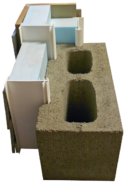
SunTerra EnergyBlock
is a Better Wall System than
Insulated Concrete Forms (ICF)
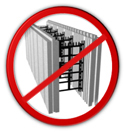
Thermal mass is in the correct location on SunTerra EnergyBlock walls
SunTerra EnergyBlock has a higher insulation value than Insulated Concrete Forms (ICF)
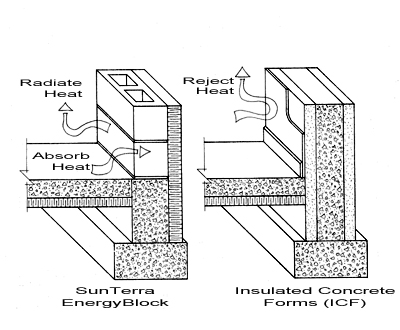
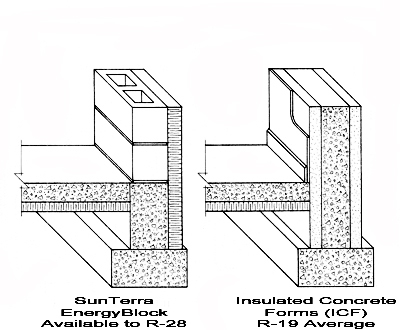
SunTerra EnergyBlock construction stores and releases more energy than Insulated Concrete Forms (ICF)
Note: Ecotope Inc, Energineering Firm – Seattle, WA evaluated R-value on ICF products (Polysteel forms R-16.7, Quad-Lock forms R-16.9 and R-20.4, and Keeva forms R-20.4)
SunTerra EnergyBlock walls are thinner than Insulation Concrete Forms providing more usable interior
SunTerra EnergyBlock’s interior surface is a finished, masonry, decorative wall.
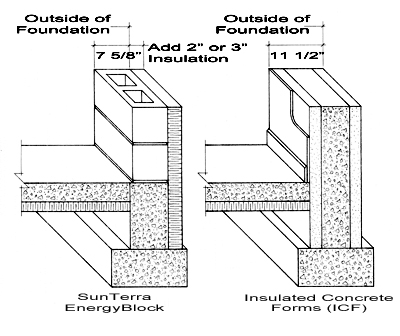
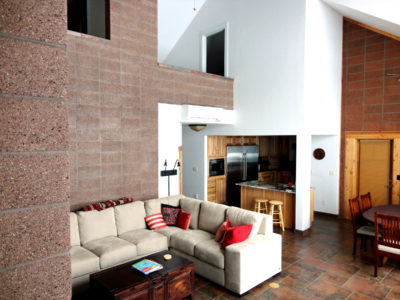
Note: A 2,000 square foot single level home loses 48 square feet of interior space at $150 per square foot that results in a loss of $7,200 with ICF.
SunTerra EnergyBlock is a structural, decorative component that comes in various finishes and colors.
Masonry Value Added
Masonry walls have the reputation of being a value added feature to homes and other buildings.
Compare the cost of cultured stone or stone veneers applied to the interior surface of a wall of $25-$30 per square foot. Compare slate, granite or tile veneer costing $15-$20 per square foot. These expenses do not include the cost of the required structural wall they are attached to.
A polished or split face colored EnergyBlock insulated wall system costs less than $15 per square foot including all of its other benefits. And with all these benefits it’s affordable compared to standard wood framing with sheetrock interior because of the significant annual energy savings for heating and cooling expense.
SunTerra EnergyBlock Cost Less to Build Than ICF
In most cases, the SunTerra EnergyBlock wall system will price out less than ICF wall systems, without the risk of a blown out or distorted wall that can occur when the concrete slurry is poured into the ICF wall cavities.
INTERIOR INSULATION APPLICATION
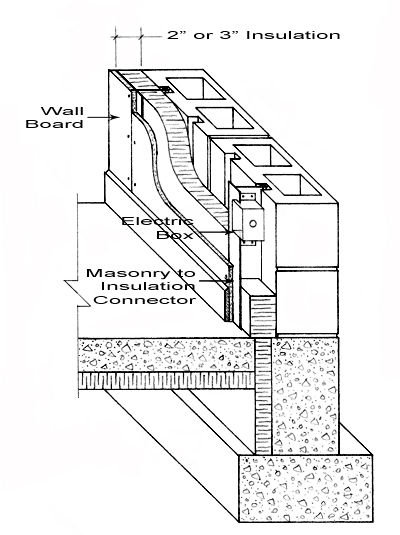
- Prevent thermal bridging and moisture condensation.
- All water resistant components.
- Reduce potential mold problems.
- Eliminate need for concrete fasteners.
- Conceal electrical wiring.
- Meet the continuous insulation code requirement.
- Save time and money.